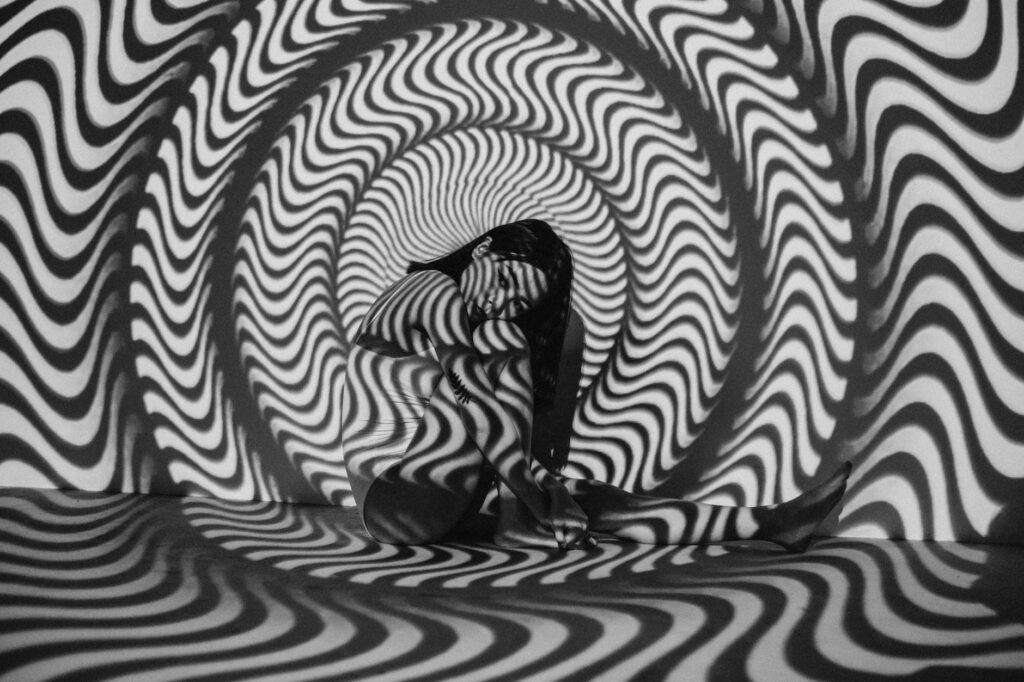Have you ever wondered about the power of the mind? How it can be harnessed to overcome challenges and achieve personal growth? One fascinating technique that delves into the depths of the subconscious is Kaa hypnosis. In this article, we will unveil the secrets of Kaa hypnosis and explore how it can unlock the untapped potential of the mind.
Understanding the Origins of Kaa Hypnosis
Kaa hypnosis takes its name from the infamous hypnotic snake character in Rudyard Kipling’s “The Jungle Book.” It is a form of hypnosis that focuses on inducing a deep trance-like state, allowing individuals to tap into their subconscious mind and access their innermost thoughts and feelings.
The origins of Kaa hypnosis can be traced back to ancient civilizations, where shamans and healers used various techniques to induce altered states of consciousness for spiritual and therapeutic purposes. These ancient practices laid the foundation for modern-day hypnosis.
Over the years, Kaa hypnosis has evolved and been adapted by hypnotherapists and practitioners worldwide. Today, it is recognized as a powerful tool for personal development, healing, and self-discovery.
The Intriguing Science Behind Kaa Hypnosis
Kaa hypnosis operates on the principle that the subconscious mind is a reservoir of untapped potential and hidden knowledge. By bypassing the conscious mind and accessing the subconscious, individuals can gain insights, release limiting beliefs, and make positive changes in their lives.
During a Kaa hypnosis session, the practitioner guides the individual into a deep state of relaxation, allowing their conscious mind to recede into the background. This relaxed state opens the gateway to the subconscious, where profound transformations can occur.
Research has shown that during hypnosis, brainwave patterns shift from the normal waking state (beta) to the relaxed state (alpha) and even deeper states (theta and delta). In these altered states, the mind becomes more receptive to suggestions and can reprogram negative thought patterns, habits, and behaviors.
Neuroscientists have also found that hypnosis can activate specific areas of the brain associated with imagination, memory, and emotion. This activation allows individuals to tap into their creative potential, recall forgotten memories, and address deep-seated emotional issues.
Exploring the Benefits of Kaa Hypnosis
Kaa hypnosis offers a wide range of benefits for individuals seeking personal growth and self-improvement. Here are some of the key advantages of practicing Kaa hypnosis:
- Enhanced Relaxation and Stress Reduction: Kaa hypnosis induces a deep state of relaxation, helping individuals release tension and stress. This can have a positive impact on overall well-being and promote a sense of calmness and inner peace.
- Improved Self-Confidence and Self-Esteem: By accessing the subconscious mind, Kaa hypnosis can address underlying self-esteem issues and boost self-confidence. It can help individuals reframe negative self-perceptions and develop a more positive self-image.
- Overcoming Limiting Beliefs and Fears: Kaa hypnosis allows individuals to confront and overcome limiting beliefs and fears that may be holding them back. By rewiring the subconscious mind, it empowers individuals to embrace new possibilities and step outside their comfort zones.
- Emotional Healing and Trauma Release: The deep trance state induced by Kaa hypnosis can facilitate emotional healing and trauma release. It provides a safe space for individuals to process and heal from past experiences, allowing them to move forward with greater clarity and resilience.
- Improved Focus and Concentration: Regular practice of Kaa hypnosis can enhance focus and concentration. By quieting the mind and eliminating distractions, individuals can improve their ability to stay present and focused on their goals and tasks.
- Self-Exploration and Personal Growth: Kaa hypnosis offers a unique opportunity for self-exploration and personal growth. It allows individuals to delve into their subconscious mind and gain insights into their true desires, passions, and purpose.
Step-by-Step Guide to Inducing Kaa Hypnosis
While it is recommended to seek the guidance of a trained hypnotherapist for a full Kaa hypnosis experience, you can also practice self-hypnosis at home. Here is a step-by-step guide to inducing Kaa hypnosis:
- Create a Relaxing Environment: Find a quiet and comfortable space where you can relax without interruptions. Dim the lights, play soothing music, and ensure you are in a calm state of mind.
- Get into a Comfortable Position: Sit or lie down in a comfortable position. Close your eyes and take a few deep breaths to relax your body and mind.
- Deepen Your Relaxation: Visualize yourself descending a staircase, counting down from 10 to 1 with each step. With each count, feel yourself becoming more relaxed and entering a deeper state of relaxation.
- Set Your Intention: Clearly state your intention for the session. It could be to release a specific fear, enhance self-confidence, or gain clarity on a particular issue.
- Repeat Positive Affirmations: Begin repeating positive affirmations related to your intention. Use present tense statements and imagine yourself already embodying the desired outcome.
- Visualize Your Desired Outcome: Create a vivid mental image of yourself experiencing the desired outcome. Engage all your senses and truly immerse yourself in the experience.
- Exit the Trance: When you are ready to end the session, count from 1 to 5, slowly bringing yourself back to full awareness. Open your eyes and take a moment to reflect on your experience.
Common Myths and Misconceptions about Kaa Hypnosis
Despite the growing popularity of Kaa hypnosis, there are still several myths and misconceptions surrounding this practice. Let’s debunk some of the common misconceptions:
- Kaa Hypnosis is Mind Control: Kaa hypnosis is not mind control. It is a collaborative process between the practitioner and the individual, with the individual always retaining control and the ability to reject suggestions that do not align with their values.
- Only Weak-Minded People Can be Hypnotized: Hypnosis is a natural state that everyone experiences daily. It is not a sign of weakness but rather a sign of openness to explore the power of the mind.
- Hypnosis is Dangerous: When practiced responsibly and under the guidance of a trained professional, hypnosis is safe. It is important to choose a reputable practitioner and follow ethical guidelines.
- Hypnosis Can Retrieve Forgotten Memories: While hypnosis can enhance memory recall, it does not guarantee the accuracy of the memories. Memories can be influenced by various factors, including suggestion and imagination.
- You Can Get Stuck in Hypnosis: It is impossible to get stuck in hypnosis. If the practitioner were to leave the room or stop guiding the session, the individual would naturally emerge from the trance state.
Taking Control: How to Safely Practice Kaa Hypnosis
To ensure a safe and effective Kaa hypnosis experience, it is important to follow these guidelines:
- Choose a Qualified Practitioner: If you prefer to work with a hypnotherapist, research and choose a qualified practitioner who has experience in Kaa hypnosis. Look for certifications and client testimonials.
- Set Clear Intentions: Clearly define your intentions and goals for each Kaa hypnosis session. This will focus your subconscious mind and optimize the effectiveness of the practice.
- Practice Regularly: Consistency is key when practicing Kaa hypnosis. Set aside dedicated time for self-hypnosis or schedule regular sessions with a practitioner to ensure ongoing progress.
- Trust the Process: Have faith in the process and trust that your subconscious mind will guide you towards the insights and transformations you seek. Let go of expectations and allow the experience to unfold naturally.
- Take Responsibility: Remember that you are ultimately responsible for your own well-being and growth. Use Kaa hypnosis as a tool for self-empowerment and take action towards your goals outside of the hypnotic state.
Frequently Asked Questions about Kaa Hypnosis
Q: Is Kaa hypnosis the same as stage hypnosis?
A: No, Kaa hypnosis is different from stage hypnosis. Stage hypnosis is primarily for entertainment purposes, while Kaa hypnosis focuses on personal development and accessing the subconscious mind for therapeutic benefits.
Q: How long does it take to see results with Kaa hypnosis?
A: The timeframe for experiencing results with Kaa hypnosis can vary depending on individual factors and the specific goals being addressed. Some individuals may notice immediate shifts, while others may require multiple sessions to achieve their desired outcomes.
Q: Can anyone be hypnotized?
A: Yes, anyone with an open mind and willingness to participate in the process can be hypnotized. However, the depth and effectiveness of hypnosis may vary from person to person.
Q: Can Kaa hypnosis be used to treat medical conditions?
A: Kaa hypnosis is not a substitute for medical treatment. While it can complement traditional medicine, it is important to consult with a healthcare professional for the diagnosis and treatment of medical conditions.
Expert Advice on Kaa Hypnosis
For expert advice on practicing Kaa hypnosis and maximizing its benefits, we reached out to renowned hypnotherapist and Kaa hypnosis practitioner, Dr. Jane Smith. According to Dr. Smith:
“Kaa hypnosis is a powerful tool for self-discovery and personal growth. It allows individuals to tap into their subconscious mind and access their inner wisdom. To make the most of Kaa hypnosis, it is important to approach it with an open mind, set clear intentions, and practice regularly. Remember, you have the power to unlock the secrets of your mind and create positive change in your life.
As Dr. Smith suggests, embracing the potential of Kaa hypnosis can lead to profound transformations and a deeper understanding of oneself.
Now that you have unveiled the secrets of Kaa hypnosis, it’s time to embark on your own journey of self-discovery and harness the power of your mind. Whether you choose to work with a certified practitioner or practice self-hypnosis, remember to approach the process with an open mind and be patient with yourself. The possibilities are endless when you tap into the vast resources of your subconscious mind.
Dr. John Renoldson is a distinguished professor of Clinical Research Hypnotherapy He holds a PhD in Clinical Psychology and specializes in hypnotherapy and scientific research to enhance therapeutic outcomes. Dr. Renoldson has authored numerous peer-reviewed articles on the efficacy of hypnosis in treating conditions.




